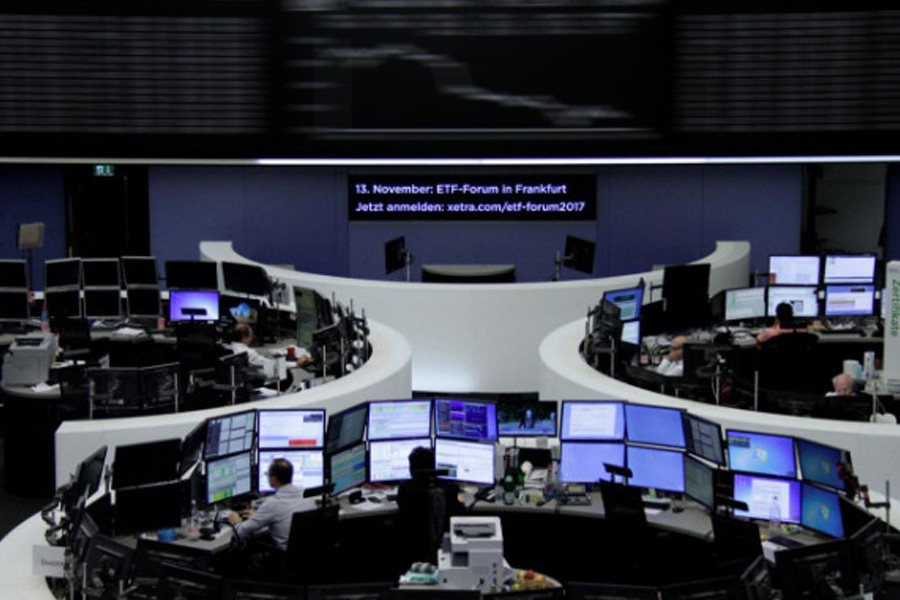European shares dipped on Friday after the Italian government agreed to set a higher than expected budget deficit target that could put Rome on a collision course with Brussels.
Shares in Italian banks, whose big sovereign bond portfolios makes them sensitive to political risk, bore the brunt of selling pressure, fell 4.5 per cent, while government bonds sold off and the focus turned to rating agencies, reports Reuters.
The pan-European index was down 0.4 per cent by 0759 GMT but was still on track for a small weekly gain, its third in a row. Italy's FTSE MIB index fell 2.4 per cent, while Germany's DAX fell 0.8 per cent.
Italy’s government on Thursday targeted the budget deficit at 2.4 per cent of gross domestic product for the next three years, defying Brussels and marking a victory for party chiefs over economy minister Giovanni Tria, an unaffiliated technocrat.
Financials weighed heavily on the STOXX 600, dragged down by losses among Italian banks. Euro zone banks fell 2.3 per cent.
Analysts at Credit Suisse led by Carlo Tommaselli said Italy’s deficit target at 2.4 per cent of GDP was not the worst case scenario for markets but still posed some issues.
Shares in Italy’s two largest banks, Intesa Sanpaolo and UniCredit, both fell more than 4 per cent, while smaller lenders such as Banco BPM and UBI were also under heavy selling pressure.
Postal group Poste Italiane, which holds 130 billion euros of Italian government bonds, fell 4.7 per cent.
Elsewhere, BASF fell 2.4 per cent after the chemicals group agreed to combine its oil and gas businesses Wintershall with DEA to create an independent European oil and gas company.
RSA Insurance reported a small rise in net written premiums for the year so far, but said higher weather losses in Britain led to a disappointing third quarter. Its shares fell 7.9 per cent.
Losses on the broader European market were limited by gains among some defensive healthcare and consumer stocks.
Swedish aerospace company Saab rallied 7.3 per cent boosted by news its partner Boeing had won a $9.2 billion contract with the US Air Force.


